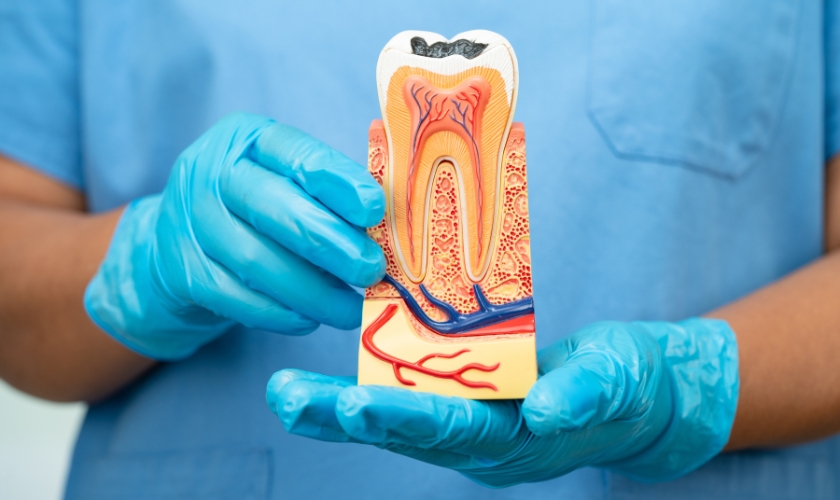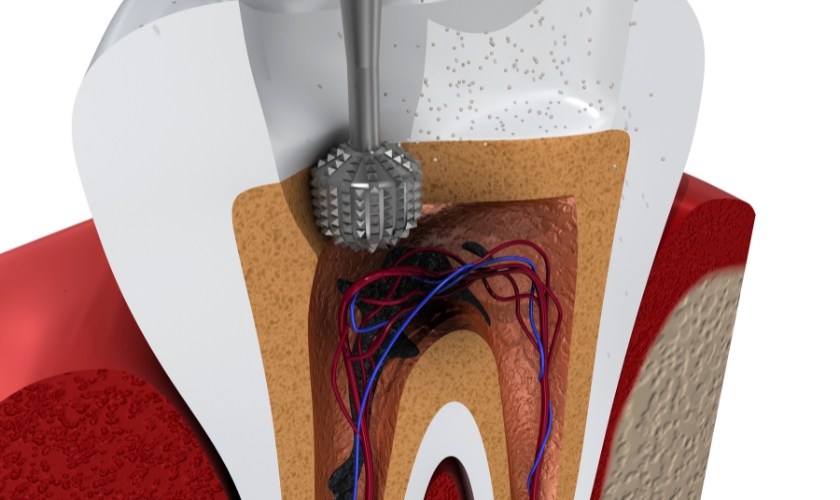Click To Text

Undergoing a root canal can sound daunting, but it’s actually a common and highly effective procedure for saving a damaged or infected tooth. If you’ve recently had a root canal, you’re likely wondering what comes next in your recovery process.
Good news: with a few simple steps, you can ensure a smooth healing journey and avoid unnecessary discomfort.
In this blog, we’ll walk you through the essential tips to help you recover quickly and comfortably. Whether it’s managing pain, maintaining oral hygiene, or knowing when to seek help, we’ve got you covered.
The road to recovery after root canal therapy doesn’t have to be complicated—by following the right aftercare instructions, you’ll be back to your regular routine in no time. So, let’s dive into the steps you can take to make sure your recovery goes as smoothly as possible!
What to Expect Immediately After Your Root Canal?
After your root canal treatment, you may experience some sensations which are completely normal. Right after the procedure, your mouth may still feel numb due to the local anesthetic. This numbness usually wears off within a few hours. However, some mild discomfort or tenderness around the treated area can persist for a few days. Don’t worry; this is part of the healing process.
- Mild discomfort is common as your body begins to heal, and it’s often most noticeable within the first 48 hours.
- Swelling or tenderness in the affected area is another normal reaction. It can happen as the tissue adjusts after the procedure.
- If the swelling persists or intensifies beyond a few days, it may signal a complication.
- When to contact your dentist: If you notice sharp, persistent pain, or if the numbness doesn’t go away after a few hours, call your dentist. Also, if you have any unusual reactions, don’t hesitate to reach out.
Root canal therapy is designed to save your tooth, but proper aftercare is key to a smooth recovery. Monitor your symptoms, and if anything feels abnormal, your dentist is the best person to help guide you.
Managing Discomfort and Pain During Recovery
During your recovery from a root canal, some discomfort is normal, but managing that pain is essential to getting back to your routine. The good news is that most of the pain should be mild and manageable. Here are some tips for keeping pain at bay while your tooth heals:
- Over-the-counter pain relief can be effective in managing mild pain. Medications like ibuprofen or acetaminophen are commonly recommended but always follow your dentist’s instructions.
- Ice packs can help reduce swelling and numb the area to make you more comfortable. Apply an ice pack wrapped in a cloth for 15–20 minutes at a time.
- What’s normal: Mild soreness or discomfort for a few days is completely normal. This usually indicates that your body is healing as expected.
- When pain becomes problematic: Severe or worsening pain may indicate an issue with the root canal treatment or infection. If you experience this, contact your dentist immediately.
- Always follow your dentist’s post-op instructions, which will help minimize pain and complications during your recovery.
Oral Hygiene After a Root Canal
Maintaining oral hygiene is crucial, even after root canal therapy. According to a study published by the Journal of Clinical Periodontology, patients who maintain proper oral hygiene after a root canal are 30% less likely to experience complications like infection. You might be tempted to avoid brushing the treated area due to discomfort, but cleaning your teeth is essential for preventing infection and promoting healing. Follow these tips for proper oral care during your recovery:
- Brush gently around the treated area. While the tooth itself may be sensitive, brushing the rest of your teeth will help maintain overall oral health.
- Floss carefully: You don’t need to avoid flossing, but be extra cautious around the treated tooth to avoid irritating the area.
- Saltwater rinse: A saltwater rinse can soothe the area and help prevent infection. Mix half a teaspoon of salt in warm water and swish it around your mouth gently.
- Avoid using a hard-bristled toothbrush, which could aggravate sensitivity and irritation.
- Stick to your regular brushing routine for the rest of your teeth but be mindful of the treated area for a few days.
Foods to Eat and Avoid During Recovery
After your root canal, your mouth may feel sore, and it’s important to eat foods that won’t irritate the treated area. Choosing the right foods will promote healing and ensure comfort as your body recovers. Here’s what to keep in mind:
- Eat soft foods that won’t put pressure on the treated area. Soups, mashed potatoes, yogurt, scrambled eggs, and smoothies are great options.
- Avoid crunchy or hard foods like chips, nuts, or raw vegetables. These can irritate the tooth and delay the healing process.
- Overly hot or cold foods may also cause discomfort due to the sensitivity of your treated tooth. Stick to lukewarm or room-temperature foods and drinks for a few days.
- Hydration is key: Drinking plenty of water promotes healing and keeps your mouth hydrated.
- Chew carefully: Try to avoid chewing directly on the treated tooth for a few days to minimize discomfort and allow it to heal properly.
Rest and Recovery: How to Speed Up the Healing Process?
Your body needs rest to recover fully after root canal therapy. By focusing on proper recovery, you can speed up the healing process and reduce any risk of complications. Here’s how to promote healing:
- Rest is crucial. Avoid any strenuous activities for the first few days after the procedure. Lifting heavy objects or intense exercise can strain your body and slow down the healing process.
- Sleep is essential for tissue regeneration. Aim for a full night’s rest to allow your body to heal and restore energy.
- Stress management can also play a role. High stress can weaken the immune system, making recovery slower. Take it easy, stay calm, and let your body do its job.
- Stay calm and patient—recovery takes time. If you have any concerns, don’t hesitate to reach out to your dentist.
Signs That Something Is Wrong: When to Call Your Dentist?
While most root canal recoveries go smoothly, it’s important to know when something might be wrong. If you experience any unusual symptoms, contacting your dentist promptly can prevent complications. Here’s what to watch out for:
- Severe pain: A little discomfort is normal, but if the pain becomes sharp or unbearable, it might indicate an issue.
- Swelling: Mild swelling is common after a root canal, but if the swelling becomes extensive or painful, call your dentist.
- Fever: A fever after the procedure can indicate an infection that needs professional treatment.
- Persistent numbness: If you still feel numb hours after the procedure or notice changes in sensation, contact your dentist right away.
- Pus or discharge: If you notice any pus or unusual discharge from the treated tooth, this is a sign of infection and requires immediate attention.
Recovering from a root canal doesn’t have to be difficult if you follow the right steps. By managing discomfort, maintaining good oral hygiene, and giving yourself time to rest, you’ll be back to feeling your best in no time. Remember, always stay in touch with your dentist if you notice anything unusual. With the right care and attention, your recovery will be smooth, and your smile will stay healthy!




